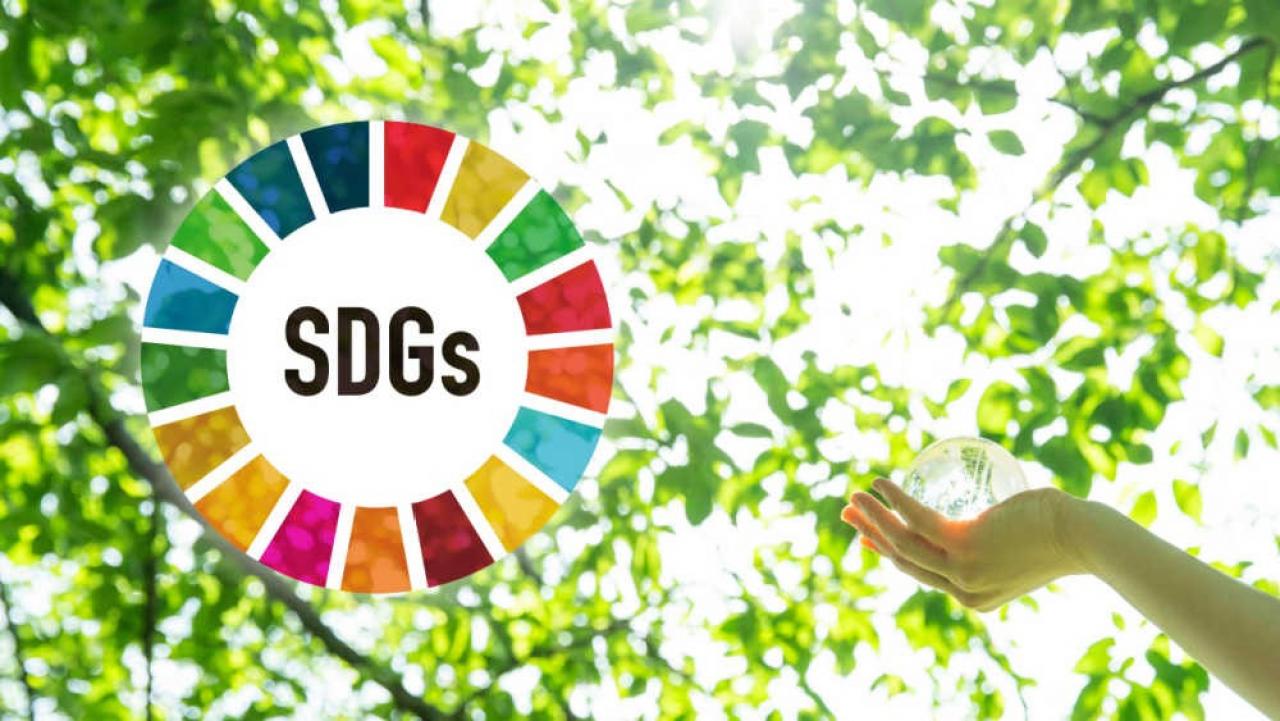On 25 September 2015, the world saw a global effort to end poverty, foster peace, safeguard the rights and dignity of all people and to protect the planet. During the United Nations General Assembly that year, the Transforming our World: the 2030 Agenda for Sustainable Development resolution was adopted. This historic document lays out the 17 Sustainable Development Goals (SDGs) with 169 targets and over 230 indicators to be achieved globally by 2030. Eight years later, a draft report by the UN Independent Group of Scientists looks at where we stand now. Although the final document will only be released later this year at the UN SDG Summit, some key messages can already be outlined as the world reaches the halfway point to the 2030 Agenda and the SDGs.
Sounding the alarm halfway to 2030
At the halfway mark, sufficient progress towards the achievement of the SDGs has not been made.
Besides the SDG Summit in September, preparations for the 2023 UN High-Level Political Forum on Sustainable Development (HLPF) in July are underway. In both occasions, decision-makers and high-level stakeholders will assess progress on the 2030 Agenda, but the bottom line is clear: we are off track. At the halfway mark to 2030 only about 12% of SDG targets seem to have made sufficient progress, reads the Advance Unedited version of the special edition of the report of the Secretary-General from last April. “[This] makes for grim reading” stated @David_McNair, Executive Director Global Policy at One.org. in a series of Tweeter posts on 27 April. As McNair reminds us, 575 million people will still be living in extreme poverty in 2030 and “hunger is back at 2005 levels”.
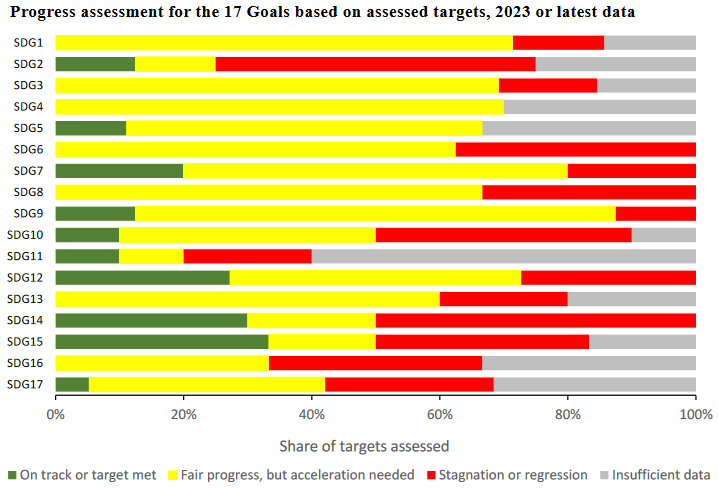
This report also finds that many of the SDGs, though showing progress, are moderately to severely off track and some 30% have either seen no movement or regressed below the 2015 baseline. Although grim, the document also calls out for intensified efforts and policy solutions to steer forces of accelerated, sustained and transformative action. It urges world leaders to come together at the SDG Summit to deliver a Rescue Plan for People and Planet centered around three major breakthroughs:
- Equipping governance and institutions for sustainable and inclusive transformation.
- Prioritising policies and investments that have multiplier effects across the goals.
- Securing a surge in SDG financing and an enabling global environment for developing countries.
Limited evidence of transformative impact
Since 2015, there is evidence of governments, business, the private sector and the general public embracing the SDGs. Overall, however, there is only limited evidence of transformative impact.
Recent scientific research articles, letters or studies have indeed found that, overall, there is only limited evidence of transformative impact of the SDGs. In other cases, these pieces are extremely critical towards the UN. For example, in May 2022, scholars of universities and research institutes from 17 countries around the world state that “UN Secretary-General António Guterres was right to state that humanity is “moving backwards in relation to the majority of the SDGs”, that “It is becoming clear that the assumptions that underpin the SDGs are invalid, including continual economic expansion” and “publicly call on the UN to drop the redundant and unhelpful ideology of Sustainable Development” (Letter to the UN – People will suffer more if professionals delude themselves about sustainable development).
Also back in June 2022, ahead of the July session of HLPF 2022, another group of researchers published an article, in Nature Sustainability, presenting the results of a meta-analysis of the available scientific evidence on the political impact of the SDGs. The authors find that the goals have had some political impact on institutions and policies, from local to global governance and they assess that “although there are some limited effects of the SDGs, they are not yet a transformative force in and of themselves.”
Cities are critical battlegrounds for a sustainable future
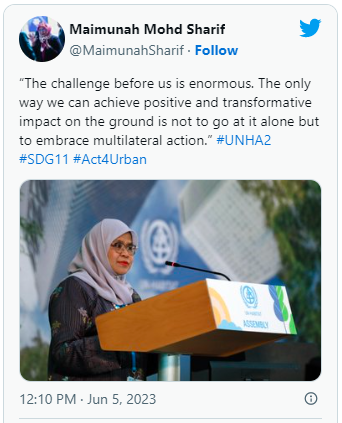
On a positive note, the 2022 article recognises that the SDGs are the “most comprehensive and detailed attempt by the UN to advance sustainable development”. Likewise, an interesting critique of the letter highlights that the scientists propose no concrete measures or credible alternative to such a framework. It concludes that “The SDGs provide an indispensable roadmap: without it, nobody would know where to go. Are we seriously going to ditch this, the only global roadmap on which the world has managed to agree? […] Yet this is a transnational issue — climate disasters know no borders — and the only way to deal with it is with increased international cooperation, not less”.
There are some other bright spots. The paper does find that “some evidence suggests that sub-national authorities, and especially cities, are often more pioneering and progressive than their central governments in building coalitions for implementing the SDGs”. As António Guterres once pointed out earlier this year, “cities are critical battlegrounds. They generate 70% of global emissions. They house half of humanity. And by 2050, over two billion more people will call them home”. The UN Secretary-General’s blueprint for action, Our Common Agenda, and the theme paper on multilateralism for the UN-Habitat Assembly call for a reinvigorated and more inclusive multilateralism, recognising the pivotal role cities and other local authorities play, in addressing the challenges ahead.
An opportunity to accelerate action
Marking the halfway point in the implementation of the SDGs, 2023 offers a window of opportunity to steer forces of change.
The political process in the lead-up to the SDG Summit can help to deliver progress for people and our planet and a momentum to advance the contribution of cities and regions to the SDGs. Throughout the event, global leaders and high-level stakeholder will carry out a comprehensive review of the state of the SDGs, respond to the impact of multiple and interlocking crises facing the world, and provide high-level political guidance on transformative and accelerated actions leading up to the 2030 deadline for achieving the SDGs. The outcome will be a negotiated political declaration.
The summit will be co-facilitated by the UN’s Permanent Representatives of Ireland and Qatar who, following an initial round of consultations with Member States as well as with major groups and other stakeholders on a draft elements paper, have issued a ‘Zero Draft’ of the Political Declaration. On 7 June 2023, a virtual informal stakeholder dialogue was hosted to solicit concrete inputs and suggestions to improve the SDG Summit Zero Draft Political Declaration.
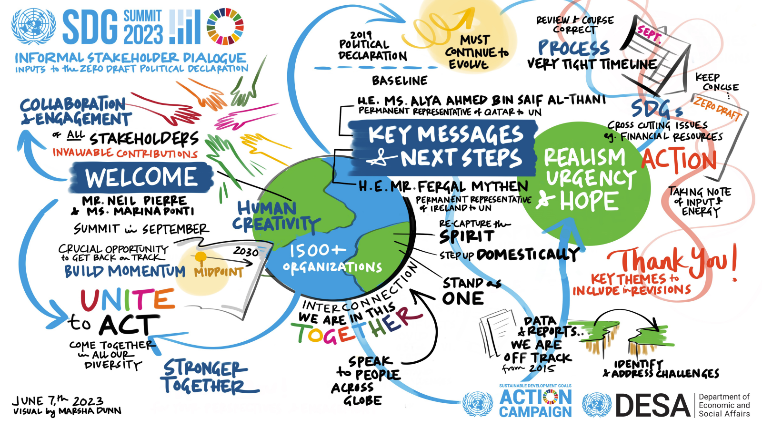
What about the EU?
The EU has fully committed itself to delivering on the 2030 Agenda and its implementation, as outlined in The European Green Deal and the Commission Staff Working Document Delivering on the UN’s Sustainable Development Goals, among others as the European Commission’s work programme and the Political Guidelines of Commission’s President Ursula von der Leyen. Regular monitoring of progress towards the SDGs in an EU context is essential for this purpose. At informal consultation on 3 February 2023, in its statement the EU urged an ambitious and action-oriented Political Declaration at the SDG Summit.

Furthermore, in May 2023, the Eurostat (the statistical office of the European Union) together with the European Semester Spring Package issued the publication Sustainable development in the European Union — monitoring report on progress towards the SDGs in an EU context, 2023 edition, which provides a statistical overview of progress in the EU. The report shows that there has progress towards many socio-economic goals over the most recent five-year period of available data, while trends in the environmental domain have been less favourable. In particular three objective show a backslide in progress: climate action (SDG 13), life on land (SDG 15) and partnerships for the goals (SDG 17).
While the Sustainable Development Report 2023, which was quite literally published yesterday, states that "all of the SDGs are seriously off track". Even if the top 20 countries on the 2023 SDG Index ranking are all European, none of them are on track to achieve the goals of the Agenda by 2030, making the partnership for goals (SDG 17) and other forms of collaboration more important than ever. The previous edition of the report, the Europe Sustainable Development Report 2022, sheds some light as to where things might have gone wrong: “SDG progress in Europe has stalled since 2020”.
Even if every European Commission’s work programme has put the SDGs at the heart of EU policymaking since 2020, the Covid-19 pandemic and other international crises have led to reversals in progress in many European countries, notably on no poverty (SDG 1), good health and well-being (SDG 3) and decent work and economic growth (SDG 8). The EU has achieved, or is on the road to achieve, around 66% of the SDG targets included in the Europe Sustainable Development Report. Yet, progress has been limited on 20% of the indicators and is heading in the wrong direction on 13%. To tackle this, five priority actions to accelerate the SDGs in the EU and internationally are put forward in the Europe Sustainable Development Report. These are jointly directed at the European Commission and Council leadership, the European Parliament and Member States:
- Ensure that the 2023 EU voluntary review includes three important elements: (1) internal priorities, (2) international spillovers, and (3) international partnerships and diplomacy for the SDGs.
- Release, by July 2023, a joint political statement from the three pillars of EU governance.
- Prepare a communication, to be issued by the European Commission, clarifying how the EU aims to achieve the SDGs in Europe.
- Implement and reinforce recent global commitments.
- Develop a new mechanism or renew the mandate of the multi-stakeholder platform.
The 2022 Europe Sustainable Development Report’s findings and recommendations echo messages called for by other European organisations and stakeholders, such as the Committee of the Regions in its Opinions on Delivering and Progress in the implementation of SDGs, the EESC in its Contribution to the EU-level Voluntary Review (VR) of the implementation of the 2030 Agenda, or the European Parliament’s own-initiative to boost EU efforts to meet the 2030 targets. This report also serves in preparation for the European Parliament’s delegation, which will attend the UN High-Level Political Forum in July 2023.
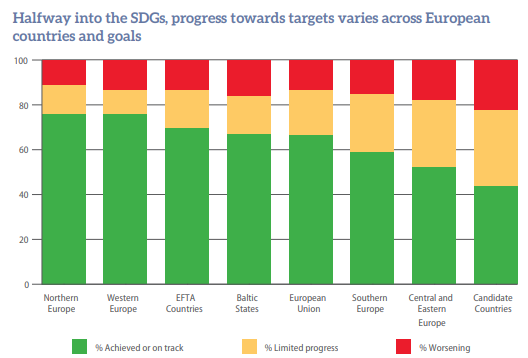
A pivotal year for the EU
As a matter of fact, not only the Parliament will be represented during such events, but the EU will also present its first Voluntary Review report at the High-Level Political Forum and the SDGs Summit, with nine Member States piloting Voluntary National Reviews.
At the halfway mark of the SDGs implementation, the Europe Sustainable Development Report’s also calls for strong European leadership to achieve the goals. Significant action is required to revitalise efforts. Suggested actions include: increasing the visibility of SDGs in EU policies, the creation of a permanent engagement platform for civil society organisations to be involved in the SDG implementation process and enhanced Eurostat data on relevant indicators. In addition, the Agenda 2030 promotes an important paradigmatic shift towards a more participatory model of multi-stakeholder governance for sustainable development.
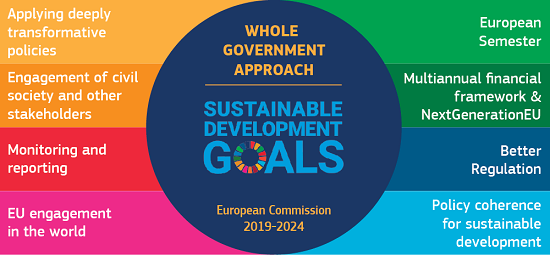
A Multi-Stakeholder Platform was set up by the Commission in May 2017 to support and advise the European Commission on the implementation of the SDGs at EU level and provide a forum for exchange of experience and best practice on the implementation of the SDGs across sectors and at local, regional, national and EU level. Unfortunately, its mandate came to an end by 2019 and it was never renewed. As today, the European Parliament’s members are urging for a platform or a forum on the SDGs should to be re-launched.
Such action would foster a structured engagement with civil society, youth organisations, businesses, trade unions and scientists in SDG-related policy development and monitoring. Highlighting the views from local communities, after all, successful implementation of the SDGs ultimately relies on local actors. This process should examine best practices from other relevant multi-stakeholder forums (such as the European Circular Economy Stakeholder Platform) and lead the way forward. We can also highlight here a broader need for structured and meaningful engagement of civil society.
This year, the first Voluntary Review of the European Union on the implementation of the 2030 Agenda for Sustainable Development takes stock of EU’s internal and external progress to SDGs, detailing how the EU is adding value to the achievement of the goals and also recognising the need to take urgent actions to accelerate the implementation of the SDGs. A process that follow up on the 2016 communication on the Next steps for a sustainable European future - European action for sustainability and the 2019 Reflection Paper towards a Sustainable Europe by 2030.
Moreover, in the Political Guidelines of the Commission 2019-2024, President von der Leyen attributes a central role to the 2030 Agenda and its SDGs, making sustainable development the keystone of European policies so that Europe can lead the Green and Digital transitions. The role of SDGs at the core of EU policy, legislation and funding is also highlighted with the ‘whole of government’ approach in the 2020 Commission Staff Working Document Delivering on the UN's SDGs - A comprehensive approach. Or even the Joint Declaration of the European Parliament, the Council of the European Union, and the European Commission on EU legislative priorities for 2023 and 2024 includes a commitment to accelerate implementation of this framework.
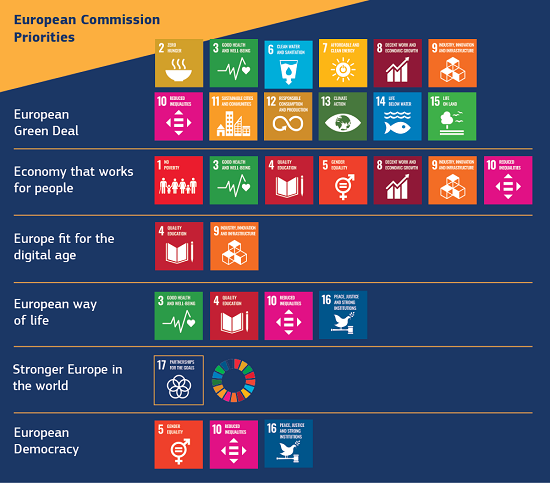
Overcoming implementation challenges
Regardless of its continuous efforts, the EU did not succeed in properly consulting citizens during the first ever European wide review of the SDGs.
While the EU Voluntary Review presents the broad range of actions that the EU has put in place across all its policy areas to deliver on the SDGs, and commitments contributing to the SDGs, the lack of involvement of the Parliament or civil society organisations in its preparations and the conclusions looking ahead are rather disappointing, as already criticised by SDG Watch Europe, a civil society alliance of more than 90 EU NGOs established to ensure the full implementation of the SDGs by the EU and its Member States.
SDG Watch Europe members deplore “the report published this week by the European Commission does not go far enough in its content or process, with civil society organisations and citizens left out in the cold as the report was drafted.” and regret “The Voluntary Review, which merely assesses what the EU has done so far and promotes its flagship policies, lacks any real vision for structural changes, nor does it provide an action plan at EU level to address gaps and challenges identified by civil society organisations on SDG implementatio".
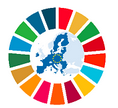
The Commission received input from the ‘Have your say’ platform as well through a consultation process conducted by the European Economic and Social Committee (EESC) but they claim that “Despite a commendable effort from the European Economic and Social Committee to lead a late-in-the-day stakeholder consultation, the EU did not succeed in properly consulting citizens during the first ever European wide review of the SDGs”.
Indeed, already the EESC appreciated the Commission’s request to provide written contribution, nevertheless pointed out that a more structure involvement of the civil society in the process with the possibility to comment on the draft report would have been desirable. On June 2022, the European Parliament adopted a resolution on the implementation of SDGs. The European Committee of the Regions (CoR) suggested amendments ahead of the adoption to make sure the local dimension of SDGs as well as the sheer contribution of cities and regions is included in the report. The CoR has re-appointed Ricardo Rio, Mayor of Braga, as rapporteur for an Opinion on the “Progress in the implementation of SDGs”, an occasion to engage in an inter-institutional dialogue with EU decision makers ahead of the UN Summit and SDGs review.
On the opinion, which was adopted in February 2023, Ricardo Rio stresses the importance of a stronger commitment to the fulfillment of the SDGs by all levels of government, a process in which the European Union can benefit from the cities' and regions' experience and exchange of best practices. Still according to him, in such a decisive year in which the EU shall present its first voluntary review, Europe must lead by example, supporting the local and regional authorities' efforts with further financial support and establishing intercontinental connections.
There is still hope to turn things around
There is a great need for EU level coordination as well as financial and policy instruments aimed at fostering innovation and boosting investments, which support SDG implementation and recognise the central role of the cities. Nevertheless, there is hope. For instance, the KnowSDGs platform is a platform that provides tools and organises knowledge on policies, indicators, methods and data to support the evidence-based implementation of the SDGs. Its tools, developed by the Joint Research Centre, are increasingly used by policymakers, stakeholders and researchers for better understanding how the 2030 Agenda works and may contribute to develop coordinated and coherent approaches for a successful implementation of the global Goals.
Likewise, the Council of European Municipalities and Regions (CEMR) and PLATFORMA have also been working to help local and regional authorities to design, implement and monitor SDGs in their local strategies. On an annual basis, PLATFORMA is publishing a study on the localisation of SDGs, alongside support to local authorities in the writing of their Voluntary Local Reviews (VLRs), feeding Voluntary National Reviews (VNRs).
During 22 months, CEMR has been working in close collaboration with URBACT as part of the Global Goals for Cities network. Based on the outcomes of the project, the Reference Framework for Sustainable Cities (RFSC) is currently providing training for cities on the localisation of SDGs to a selection of eight to ten cities. Throughout three modules, this training academy aims at translating the SDGs at the local level and at encouraging participating cities to exchange on their experiences and issues and replicate it with other colleagues or stakeholders.
So, there is still definitely hope. There are good examples and practices across Europe, all of which cannot be reported in one single article. An effort is nonetheless made to highlight stories abour governance from Ghent (BE), Tallinn (EE) and Espoo (FI).
Focus on the case of Ghent (BE)
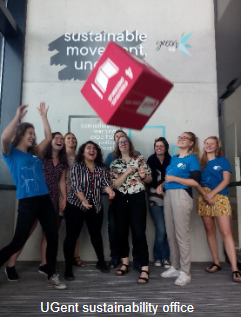
For several years, the Association of Flemish Cities and Municipalities (VVSG) has been supporting cities the integration of the SDGs as a framework in different phases of the local policy planning process, providing them with guidance and tools and developing a lot of material, which are available on VVSG website. They have a lot of materials, many of which have been developed based on the approach and lessons learned of their SDG Pilot Project (2017-2019). Since 2017, the City of Ghent is one of the ambassadors to help announce and implement the SDGs in Belgium. In 2022, VVSG produced an inspirational ‘SDG monitoring and reporting for a local policy with impact’ guide delving deeper into monitoring local progress on the SDGs. The city of Ghent foresees linking the SDGs to measures in the city’s multiannual strategic framework and budget. Ghent was the first Belgian municipality to draw up an SDG report.
Since 2020, Ghent has published annual reviews on the achievement status of the 2030 SDGs. The 2020 Voluntary Local Review monitored the situation across all 17 SDGs, aiming to end this cycle in 2024-2025. Between the starting and final report, the city highlights annually one of the pillars of sustainable development, by means of ten inspiring initiatives, with roots in Ghent. In the years 2021 to 2023, qualitative reports are prepared for each pillar of sustainable development - People in 2021, Prosperity in 2022 and Planet in 2023. The pillars Peace (SDG 16) and Partnership (SDG 17) are covered in each report. To draw up these reports, the city departments enter into dialogue with platforms and consultative bodies in the city. In the context of international exchange and learning, Ghent translates its sustainability reports and presents them as Voluntary Local Review (VLR).
Tallinn (EE), the 2023 EU Green capital
One of the main aims of the 2023 EU Green Capital of Tallinn is sustainability governance. The city argues that for other city administrations to tackle multidimensional challenges concerning People, Planet, Peace, Prosperity and Partnerships, the integration of the SDGs into local strategies requires deep transformations at the local level. The
17 SDGs must be integrated into every aspect of the city governance, which requires a transition from a checklist mentality towards the SDGs as a holistic disposition of administration. Tallinn has been the Lead Partner of the URBACT ‘Global Goals for Cities’ network of 19 cities, each one from a different European country, focusing on accelerating progress towards localising the SDGs, through peer learning and adopting the SDGs as a common framework for local planning and actions.
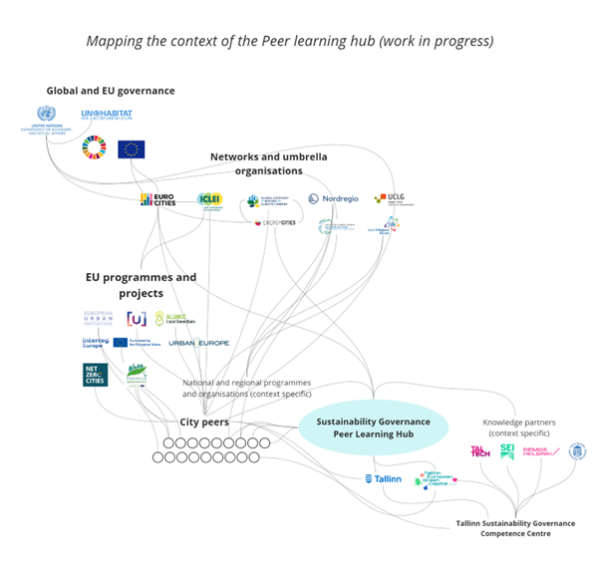 The Joint Statement of Support for SDG Localisation and the GG4C Learning Kit are part of the final network result product. Module 6 of the Learning Kit is focused on strengthening governance for the SDGs in cities.Local outcomes of the GG4C network were Integrated Action Plans (IAPs) produced by each city partner. Tallinn’s output is the Tallinn Sustainable Development Action Plan for the years 2023-2026 as included in the ‘Tallinn Sustainable Development Guide: Guidelines for the implementation and monitoring of the UN Sustainable Development Goals in Tallinn’ in which Tallinn is trying to align the city’s goals and targets with the SDGs and re-shape the city administration to enable better horizontal cooperation and co-creation.
The Joint Statement of Support for SDG Localisation and the GG4C Learning Kit are part of the final network result product. Module 6 of the Learning Kit is focused on strengthening governance for the SDGs in cities.Local outcomes of the GG4C network were Integrated Action Plans (IAPs) produced by each city partner. Tallinn’s output is the Tallinn Sustainable Development Action Plan for the years 2023-2026 as included in the ‘Tallinn Sustainable Development Guide: Guidelines for the implementation and monitoring of the UN Sustainable Development Goals in Tallinn’ in which Tallinn is trying to align the city’s goals and targets with the SDGs and re-shape the city administration to enable better horizontal cooperation and co-creation.
As a follow-up initiative, Tallinn has planned to launch an international Peer learning hub on Sustainability Governance. The overall aim is to arrive at a concrete cooperation agreement with interested partners by the end of 2023, with a shared work plan for 2024 when the European Green Capital status will be handed over to Valencia, Spain. This is all work in progress. As one of the next steps, the peer learning hub will be launched in Stuttgart during the Urban Future #UF23 conference, where Tallinn will host a workshop session on SDGs and governance, highlighting on how the SDGs can help to take a leading role in closing the "action gap" towards the SDGs, by focusing on better governance.
The role of city-to-city exchange
In his role as rapporteur, the Mayor of Braga, a city that also happened to be a partner in GG4C, provided an useful example of SDG advocacy efforts and stressed the importance of supporting regional and local authorities through EU means is highlighted. For example, it states that the CoR strongly supports the dissemination of local and regional best practice and believes it is fundamental to promoting the SDG agenda. The document continues by saying that the recently created URBACT network pilot of cities localising SDGs is one, among different ways, to achieve this. Nevertheless, the EU must create a new programme for the exchange of good practice between cities and regions across the EU, including cities from other continents, to identify global good practices and promote bilateral agreements.
Political leaders from the GG4C network have highlighted the importance of forums where cities can exchange good practices on SDG localisation and other challenges facing cities in a Joint Statement of Support for SDG Localisation by URBACT Global Goals for Cities network. The statement underlines that cities need continued empowerment and support to translate the SDGs into local realities. Prior to the GG4C statement, the network joined a call to Eurocities on Strengthening Cooperation and Cocreation with European cities in the Context of SDGs and Voluntary Local Reviews. The importance of city partnerships for SDG localisation is also evident in other existing city networks, such as Nordregio SDG work and the network Strategic Management of SDGs in Cities (SDG46 six-city network) of the Finish cities of Espoo, Helsinki, Oulu, Tampere, Turku and Vantaa, among others.
Links with the newly approved Action Planning networks
With the approval of the new round of 30 Action Planning Networks, the ‘Cities for Sustainable Governance (CSG)’ network led by the city of Espoo (FI) will particularly focus on creating locally adapted governance processes and tools by using Sustainable Development Goals as a strategic vehicle. It shall allow to build on the results from the URBACT III Global Goals for Cities network, taking this work to the next level with Espoo, a lighthouse city from the GG4C network that is already considered as a forerunner amongst Finnish cities, including in conducting its Espoo Voluntary Local Review in 2020. The CSG network is a unique chance to work with a new group of motivated cities of all sizes: namely Espoo (FI), Agios Dimitrios (EL), Braga (PT), Gabrovo (BG), Jablonec nad Nisou (CZ), Košice (SK), Mannheim (DE), Tallinn (EE) and Valencia (ES).
A call for a comprehensive European strategy
As governments ramp up preparations for the High-Level Political Forum and the SDG Summit taking place in September, Europe now needs to show real leadership on SDGs on the world stage. With many countries engulfed by stubborn inflationary economic crises and global shocks that risk erasing vital SDG progress, the EU needs to revive a spirit of multilateral cooperation and foster the political will required to achieve the sustainability commitments dating as far as 2015. Above all, the EU needs to take measures to reverse the negative trends highlighted in the EU Voluntary Review.
“With only seven years left to achieve the SDGs, the role of the incoming European Commission in 2024 will be instrumental to ensure the EU’s delivery of the 2030 Agenda. The EU VR provides a first step, but what we need is an overarching European Strategy on Sustainable Development that guides all policies and measures with clear timelines and targets around all SDGs. Such a strategy also needs to ensure the meaningful participation of civil society participation and citizens,” stated Patrizia Heidegger, Deputy Secretary General and Director for EU Governance, Sustainability and Global Policies, European Environmental Bureau (EEB). “In 2024, we need a European Pact for Our Common Future, a European Green Deal 2 if you want, but one addressing the full spectrum of sustainable development as the main instrument to achieve our objectives for 2030”.
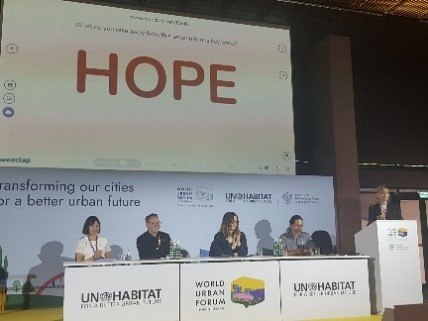
At the 11th World Urban Forum in Katowice (PL), on 26-30 June 2022, representatives from the URBACT Global Goals for Cities network, presented some of their results. At the closing of the panel discussion participants were asked what they brought home in one word. And the first one that came up was "hope". So, let’s keep our hopes up!

Learn about all the tools and processes the Global Goals for Cities network have used to localise the SDGs in European cities in the URBACT Knowledge Hub!

